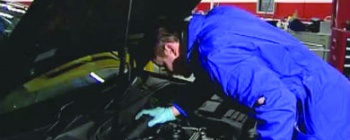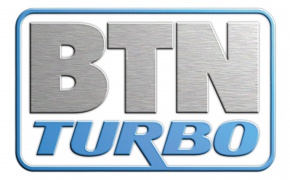
Turbo experts reinforce the importance of diagnosis
A diagnostic fault code that points to the turbo may be highlighting the result and not the cause, says BTN Turbo
A turbo is part of the oil, air, cooling and fuel systems. Check them all, experts advise.
Low power, excessive noise or smoke are often blamed on the turbo, yet turbochargers are extremely reliable – just one per cent so-called turbo failures are due to a fault with the turbo itself, according to BTN Turbo.
The turbocharger is an integral part of the engine’s air, fuel, cooling and oil systems, so any problem in these systems will have an effect on the turbo.
BTN say it’s essential to find out what caused the turbo to fail, or you may just repeat the problem.
Check hoses
A split hose can cause over-revving.
A blocked filter or intercooler, obstructions, leaks or splits in any hoses or pipes, or even using non-OE spec parts, can lead to turbo failure.
For example, a split air intake hose can make the turbo over-rev and overboost.
Check specification
Is the engine modified or worn out with low compression?
If the turbo isn’t receiving the amount of energy it was designed for, it won’t perform properly or may fail prematurely.
Even simply overfilling the engine oil can over-pressurise the system and damage the turbo – or suggest there’s a turbo problem.
Check the oil
More than 90 per cent of turbo failures are oil related: either oil starvation or contamination.
BTN advise technicians to examine this area first when you’re searching for a fault.
Remember it’s vital to change the oil, and replace the oil and air filters, when you fit the new turbo.
BTN add: “When a turbo stops working, it seems obvious it should take the blame.
“But in nearly every instance, the reason for the failure almost certainly lies elsewhere.”
Find more information by following the ‘more details’ link below or call BTN Turbo on 01895 466666.
Garage Wire Oct 2016


 Click here to open the navigation menu
Click here to open the navigation menu